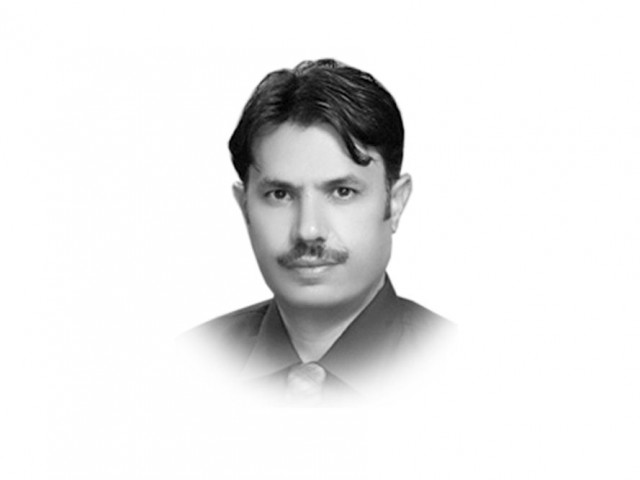What is our nation made of?
Intellectuals like Iqbal provided the roots for the consistent confusion Pakistan has been suffering from.

The writer is executive director at the Institute for Education and Development in Swat. He is currently on a fellowship in Japan
Intellectuals like Muhammad Iqbal asserted that a nation is made up of religion. They held that Muslims are one nation because they adhere to one religion — Islam. This was during the late 19th and early 20th centuries and the global trend was of emerging ‘nation states’ as the colonial powers were losing their hold and expanding communism was a major threat.
The definition of the term ‘nation’ raised a great debate among intellectuals in British India.
The secular educated stalwarts, like Iqbal, based their thesis on religion. Interestingly, scholars related to the Deoband religious seminary were of the view that ‘qomiat az watan ast’ — nationality is made up of country. For reference, one can even look at the debate between Iqbal and Maulana Hussain Ahmad Madani, which took a very harsh turn.
Iqbal’s thesis didn’t make any significant dent on Muslims until the All India Muslim League began mass mobilisation using the slogan of religion. Iqbal, in 1937, wrote to Muhammad Ali Jinnah that Islam can guarantee the economic development of Muslims and can be an effective tool against Nehru’s socialism.
Confused as they were between a nation state and an Islamic revival, intellectuals like Iqbal provided the root for the consistent confusion Pakistan has been suffering since its creation.
After the making of Pakistan, its leaders, especially Iqbal and Jinnah, were made idols under the patronage of the newly born state. Religious men like Maududi, who were more effective orators than scholars; and who were either against Pakistan because of the ‘secular’ Jinnah or were indifferent to it, were encouraged to frame the course for the embryonic state. The debate about whether Pakistan would be a Muslim state or an Islamic theocracy delayed the Constitution’s making for a decade.
But worse happened when the military dictators, especially Ziaul Haq, needed religious groups like the Jamaat-e-Islami (JI) for prolonging their illegitimate rule using religion as a slogan. This nexus shaped the course and the destination is now before us.
Now, in the aftermath of Munawwar Hassan’s misplaced assertion regarding the terrorists as martyrs while the Pakistan Army’s slain soldiers are not, the Pakistan Army and the JI seem to be at loggerheads over the Pakistani Taliban — the military must put a few things before the nation.
First, as the Pakistan Army thinks of the TTP as its enemy now, what does it think of other jihadi outfits such as the Jaish-e-Muhammad, Lashkar-e-Taiba, Haqqani group of the Taliban, etc.? Secondly, the Pakistan Army needs to brief us as to how it sees the Afghan Taliban. Thirdly, we need to be informed how the Afghan Taliban are different from the Pakistani Taliban. Lastly, the JI used to be close to the Pakistan military. Now it is the political wing of not only the Pakistan Taliban but also of alQaeda. The Pakistan Army also needs to clarify its position as to where it stands regarding all the jihadi outfits and their partners in Afghanistan.
Published in The Express Tribune, November 14th, 2013.
Like Opinion & Editorial on Facebook, follow @ETOpEd on Twitter to receive all updates on all our daily pieces.















COMMENTS
Comments are moderated and generally will be posted if they are on-topic and not abusive.
For more information, please see our Comments FAQ